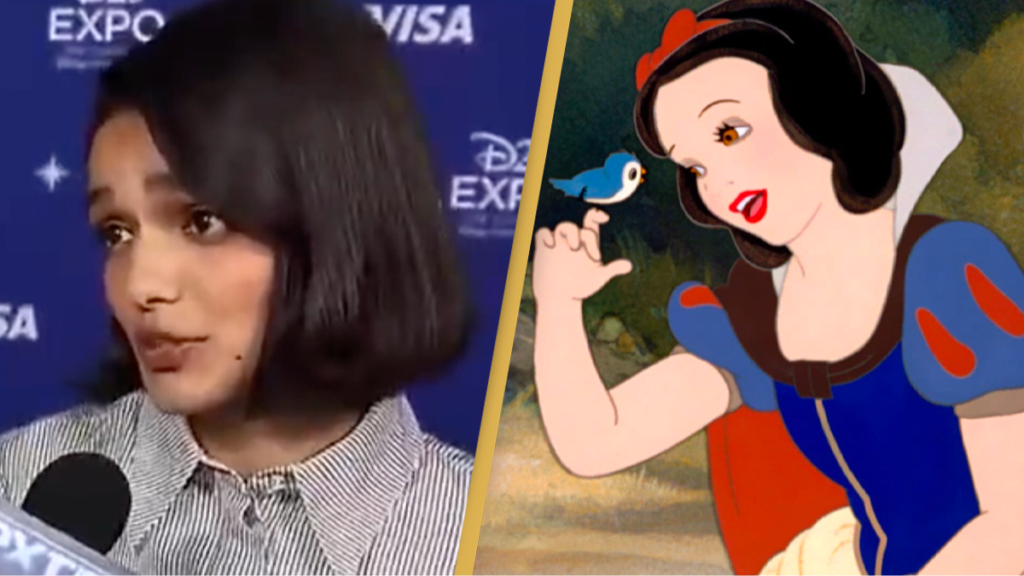Introduction
In an era marked by a resurgence of classic fairy tales reimagined for modern audiences, Disney’s decision to cast rachel zegler snow white in their upcoming live-action adaptation has stirred substantial public and critical debate. This casting choice, significant for its break from traditional imagery and its embrace of diverse representation, has sparked conversations across multiple platforms about the evolving nature of film casting in contemporary Hollywood. This article explores the layers of the ongoing discussions surrounding Rachel Zegler’s portrayal of Snow White, examining the cultural, social, and cinematic impacts of this pivotal casting.

The Significance of Casting Rachel Zegler as Snow White
Rachel Zegler, a young actress of Colombian and Polish descent, first captured public attention with her debut in Steven Spielberg’s adaptation of West Side Story. Her casting as Snow White marks another significant milestone in her burgeoning career but also represents a broader shift within the entertainment industry towards inclusivity and diversity. Traditionally, Snow White has been portrayed as a character with ‘skin as white as snow,’ which many have considered ethnically white. Disney’s decision to cast a Latina actress in this role is a progressive step that challenges the conventional portrayal and brings a fresh perspective to the beloved character.
Historical Context and Evolution of Snow White
To fully understand the significance of Ziegler’s casting, it is essential to revisit the history of the character Snow White. Created by the Brothers Grimm in 1812, Snow White was a product of its time, with its characterizations and themes reflecting the societal norms of early 19th-century Germany. Since then, Snow White has evolved and adapted to various cultures worldwide. Disney’s 1937 animated film “Snow White and the Seven Dwarfs” was groundbreaking in animation and storytelling, setting a template for the character that would endure for decades. Each reinterpretation of Snow White offers a mirror to its society’s values and norms at the time, and the latest adaptation with Rachel Zegler is no different.

Public and Critical Reaction to the Casting
The announcement of Rachel Zegler as Snow White was met with acclaim and criticism. On one hand, many praised Disney for their commitment to diversity and for challenging the racial stereotypes that have historically been associated with this role. Fans and critics alike have expressed excitement over seeing a new, more inclusive interpretation of Snow White that might better reflect a global audience. On the other hand, some detractors argue that this casting decision strays too far from the traditional depictions of the character, viewing it as an unnecessary concession to political correctness.
Industry Impact of Diverse Casting Choices
The casting of Rachel Zegler as Snow White is not an isolated incident but part of a more significant trend in Hollywood toward increased diversity and representation. In recent years, major studios have made significant strides in including more diverse talents in front of and behind the camera, altering audience expectations and expanding the market reach of their productions. This shift has also sparked a broader debate about the role of race and ethnicity in casting choices and whether the goal should be to remain faithful to historical or source material depictions or to adapt them to reflect contemporary values and demographics.

Challenges and Opportunities Ahead
While the casting of Zegler presents numerous opportunities for storytelling and cultural impact, it also comes with challenges. The film industry must navigate the delicate balance between honoring beloved traditions and embracing new ideas. Moreover, the success of such a film will likely influence future decisions in Hollywood regarding diversity in casting. These decisions must continue to promote inclusivity while ensuring that the changes contribute positively to the narrative and respect the source material.
Conclusion
The debate over Rachel Zegler’s role as Snow White underscores a pivotal moment in cinematic history, where tradition meets modernity and cultural representations are being reevaluated through the lens of contemporary values. As Disney progresses with its live-action adaptation, the discussions surrounding this casting choice will likely continue, reflecting broader societal shifts towards inclusivity. Whether this reimagined Snow White becomes a landmark in progressive storytelling or a point of contention, it undeniably marks a significant chapter in the evolution of how stories are told and who gets to say to them.
Rachel Zegler’s casting as Snow White in the upcoming Disney adaptation speaks volumes about Hollywood’s current climate and future direction. It represents breaking long-held norms and embracing a world where anyone can dream of being a princess, regardless of their background. As we anticipate the film’s release, its discourse may prove as captivating as the story itself, offering insights into a changing world both on-screen and off.








